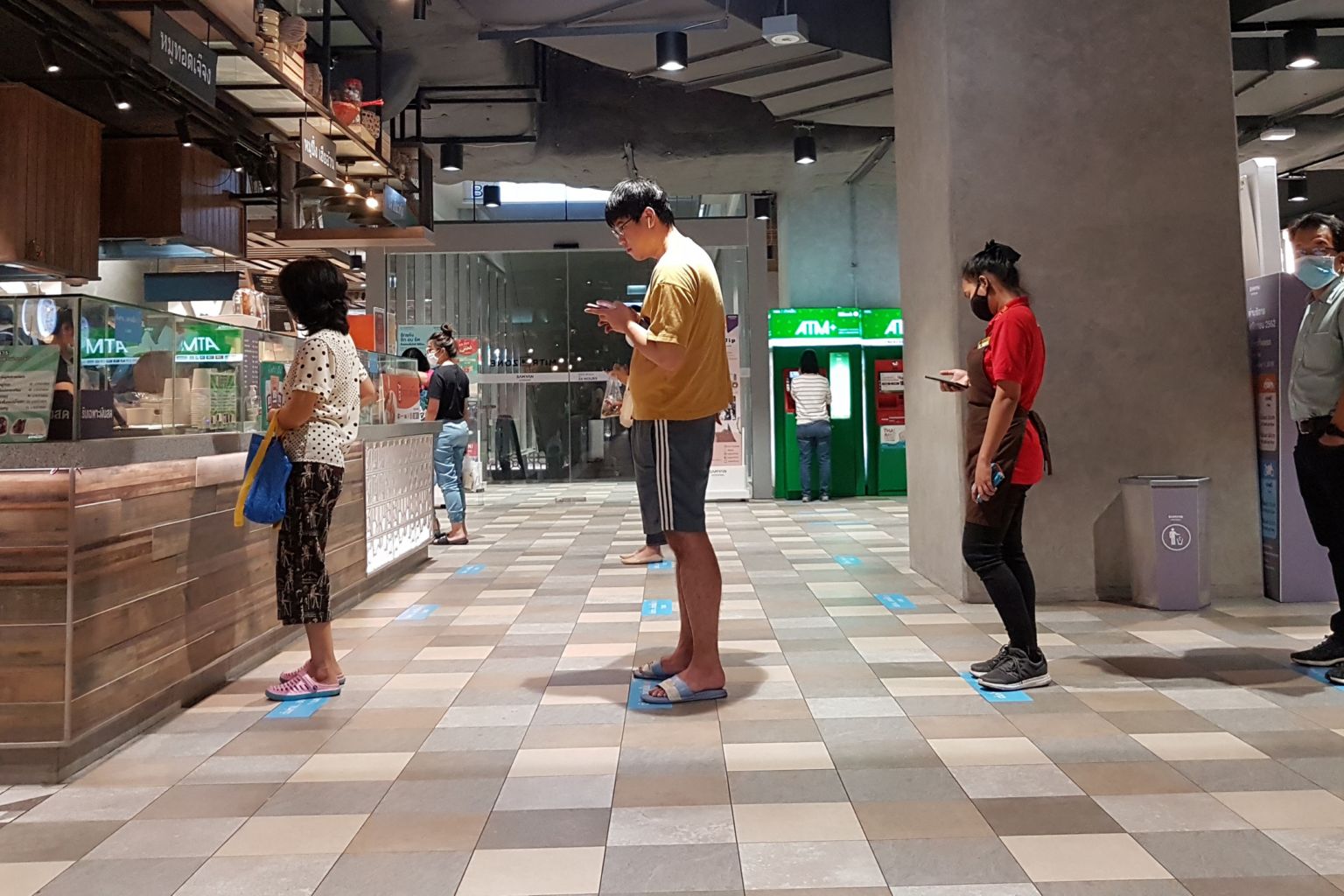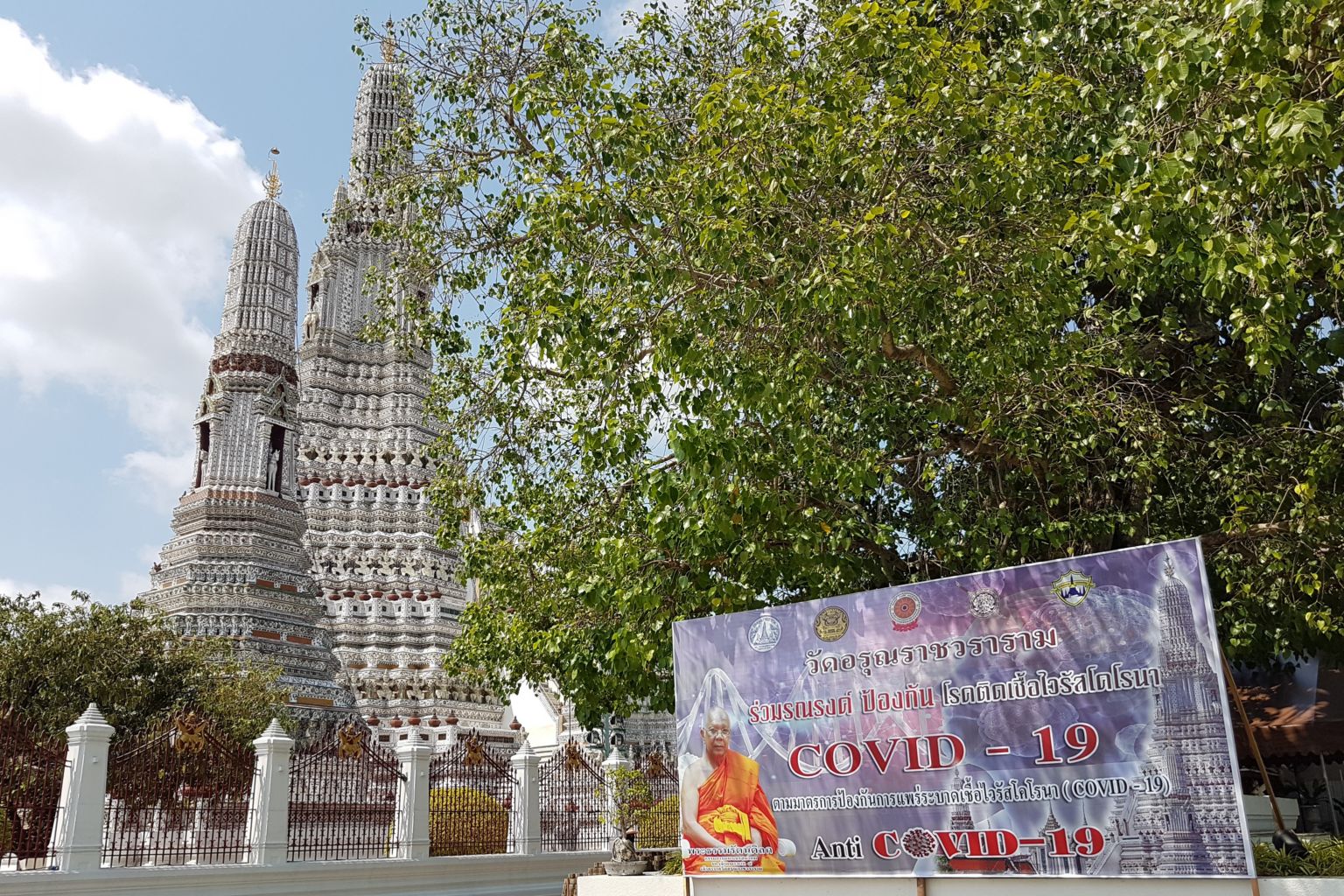Hunger management in coronavirus-stricken Bangkok
Sign up now: Get ST's newsletters delivered to your inbox

Customers at a food court in Bangkok line up according to the blue tape on the ground to encourage social distancing.
ST PHOTO: TAN HUI YEE
Follow topic:
BANGKOK - The motorcycle taxi that I had just got off didn't seem to be leaving. I turned around, half expecting to be accused by the driver of paying her less than agreed.
But she was busy. Having carefully stowed the 30 baht (S$1.30) I gave her, she vigorously rubbed her hands with alcohol gel from a bottle dangling off her handlebar. She did this for a full minute - under the blazing sun - before zooming off to look for another passenger.
With over 1,500 cases of coronavirus infections recorded so far, even relaxed folk in Thailand are getting nervous.
The kingdom so far has been trying to curb domestic transmission while averting a full-scale lockdown. In place of this nuclear option is a series of restrictions steadily erected by local administrations using special legislation like the Emergency Decree, which came into effect last Thursday (March26).
In the southern border province of Yala, where a 50-year-old man who attended a mass mosque gathering in Kuala Lumpur has died, the governor banned non-essential entry and exit of vehicles in key districts.
Checkpoints have been set up along major roads across the nation and inter-provincial buses allowed to operate only at half their usual capacity.
The pandemic has pushed the military, which ended its five-year rule over Thailand just last year, back into the headlines.
One of the biggest clusters of infected persons is linked to a controversial kickboxing match held in the army-owned Lumpinee Boxing Stadium. Defence forces chief Pornpipat Benyasri, placed in charge of security affairs in this state of emergency, last Thursday reminded Thais to be disciplined, warning of even more draconian measures otherwise.
"We should control ourselves instead of being forced to do so by the state," he said, warning that a daytime curfew could be imposed if people did not stay home and the rate of infections continued rising apace.

Thailand's borders are officially closed to all tourists, but there are stragglers.
At Wat Arun, or the Temple of Dawn, a young Russian family traipsed around the quiet lawn by the Chao Phraya River trying to get pictures of the towering stupas behind. They were the only people around not wearing a mask.
"We forgot the mask today," 47-year-old Mikhail Ajeev said sheepishly. "This evening, we will put it back on."
His wife, Alla, is a nurse who will be heading straight to the front lines of Russia's own battle against the virus upon their return to Moscow this week. Russia's Covid-19 cases have surged past 1,800 on Monday.
Nearby, drinks vendor Rapeeporn Raksak hurriedly put on her mask as I approached.
"These days, I walk away from people after saying what I need to say," she confessed. "I dare not linger."
Bangkok's malls are shut, but their food outlets remain open for takeaway orders. After buying a burger in a mall last Friday, I searched in vain for a corner to take a bite.
But all the chairs in foodcourts have been cleared away. Some restaurants have barricaded their seating areas. Office workers disappeared back into their cubicles with plastic bowls of noodles.
Others, like me, wandered around the vast empty podium with their packed lunches like lost sheep.
I briefly entertained the idea of scarfing my lunch down by the curb outside, but eventually dragged my famished self home. Dining while social distancing probably needs a little practice.

